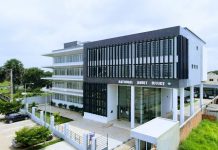IMF Senior Economist Says
By: Kebba AF Touray
Olivier Basdevant, Senior Economist with the International Monetary Fund, said public processes appear vulnerable to corruption. Basdevant made these remarks at the end of the mission on the conducted by IMF staff on governance diagnostic for the Gambia at the request of the Gambia authorities, which was conducted from January 10th to 24th 2023.
Badevant who led the IMF mission to conduct a diagnostic assessment on the strength of the governance framework of the Gambia, identified vulnerabilities including corruption, and offers reform options guided by the IMF’s framework for enhanced engagement in addressing governance vulnerabilities.
According to the Senior Economist, the diagnostic assessment provides an opportunity to carry out a detailed scrutiny of the severity of corruption and governance weaknesses in key state functions, in order to propose options to address those vulnerabilities.
“Public processes appear vulnerable to corruption and uneven decisions owing to limited digitalization and undefined conditions for applying discretionary powers. This issue was observed in various areas including procurement, staff recruitment and enforcement of contractual and property rights,” he said. He went on to state that official records are often paper-based and both access and reliability appear to be challenging. He said official public websites and e-platforms where they exist, are not always up to date. He reported that since 2017, The Gambia has been engaged in governance reforms, with new laws such as the 2018 Central Bank Act; the Access to Information Law 2021 and the Public Procurement Act 2022, including bills on anti-corruption, anti-money laundering and countering the financing of terrorism, public finances, state-owned enterprises and banking.
That the governance reform laws that the Gambia government has been engaged in are the modernizing processes in part through digitalization and automation such as the GRA’s rolling out of the Automated System for Customs Data, ASYCUDA World; the ongoing efforts to develop an e-procurement platform) and bringing the banking sector regulatory and supervisory framework closer to international standards. He however stated that challenges remain, which will require continued efforts to improve governance and reduce corruption vulnerabilities.
“Administrative capacity is limited, thus hampering the delivery of timely and quality public services. Existing resources could be focused on the highest risks and the mission welcomes the authority’s intention to continue strengthening their capacity,” he said. The mission he reiterated commends the authorities for their anti-corruption efforts notably with a bill broadly aligned with best practices, even though some provisions could be improved such as the independence of the anti-corruption commission to ensure effective enforcement. He encouraged the authority’s efforts on behalf of the IMF, in bringing the anti-corruption framework in line with best practices, including assets declaration and conflicts regime, and also encouraged The Central Bank of The Gambia to continue efforts to further strengthen oversight and internal governance arrangements including banking supervision.
In looking forward, the Senior Economist said the IMF stands ready to support the authorities in their governance reform agenda, through continuous capacity development and encourage them to develop a comprehensive national strategy for good governance, which could be informed by forthcoming IMF reports and supported by Gambia’s development partners.
The mission met the Seedy Keita, Minister of Finance and Economic Affairs; Dawda Jallow Minister of Justice and Buah Saidy, Governor of the Central Bank of The Gambia, as well as other senior officials and representatives of the private sector, civil society and international development partners.




















